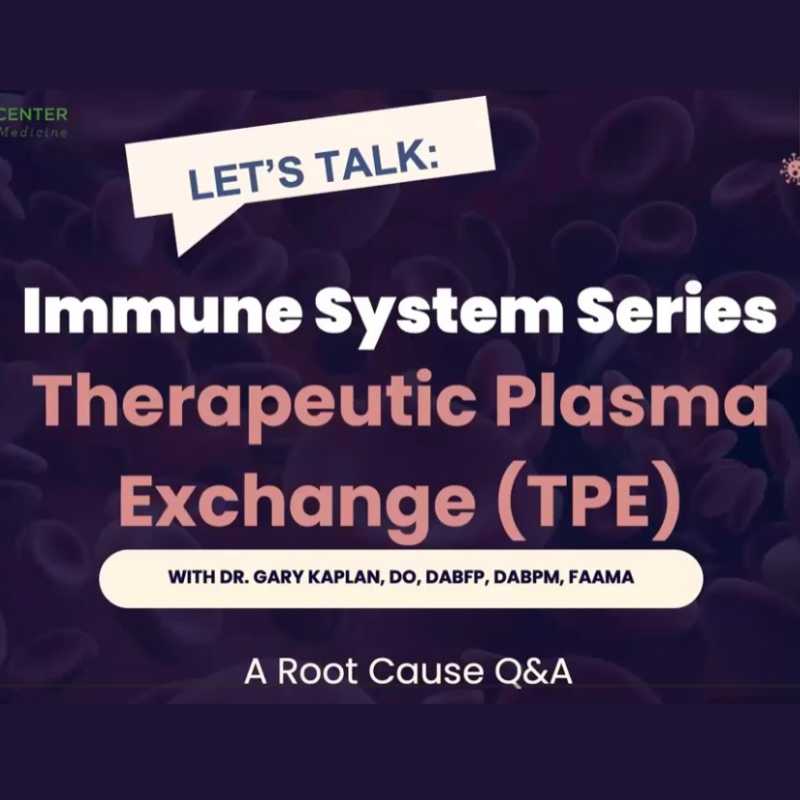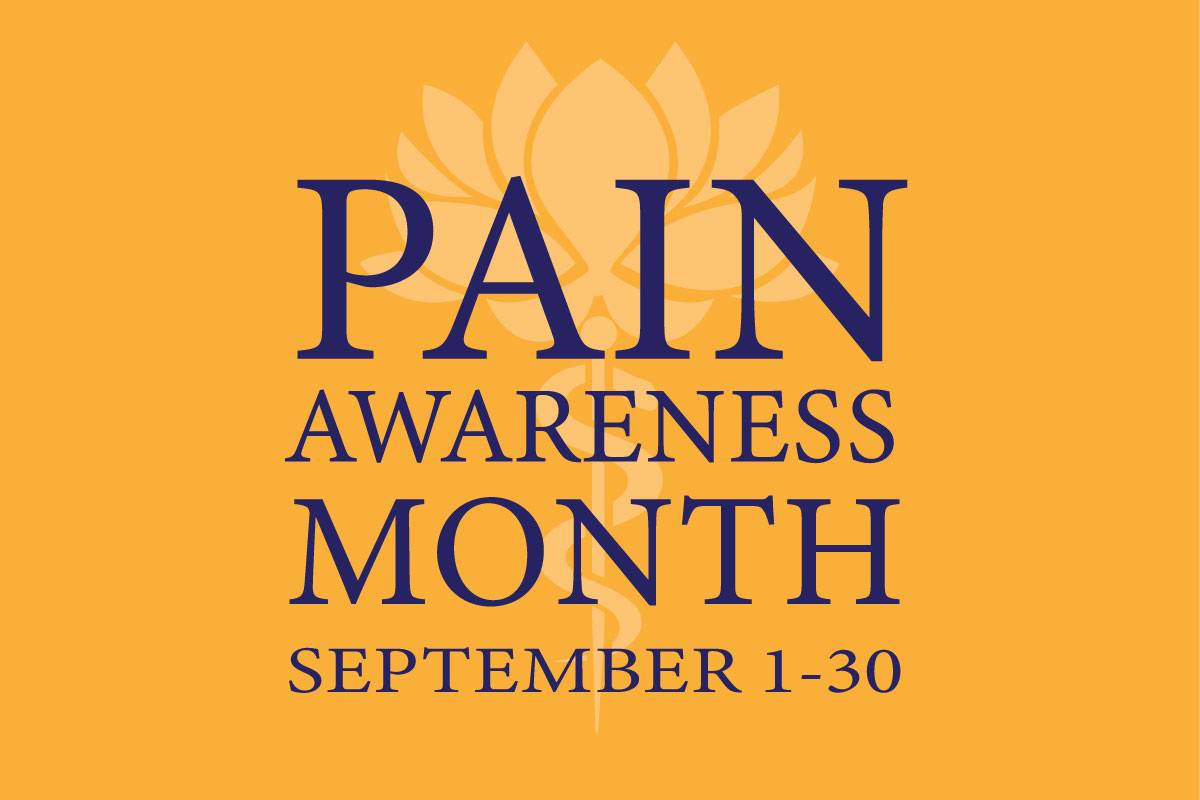
5 Ways We Can Keep Your Immune System Strong
December 10, 2025/by Kaplan Center
Want to Take Your Workout to the Next Level Next Year? These Tips Can Help
December 8, 2025/by Kaplan Center
Dr. Kaplan’s Dos and Don’ts of the Holiday Season
December 3, 2025/by Kaplan Center
Let’s Talk Webinar – A Root Cause Q&A
December 2, 2025/by Kaplan Center
Navigating Holiday Meals with Gut Issues: Simple Tips for a Comfortable Season
December 1, 2025/by Chardonée Donald, MS, CBHS, CHN, CNS, LDN
Craniosacral Therapy for TMJ | Say Goodbye to the Daily Grind
November 19, 2025/by Patricia Alomar, M.S., P.T.
From Compassionate Care to Personal Healing: A Letter to My Patients
November 18, 2025/by Kaplan Center
8 Steps to a Healthier Gut—and a Longer, Healthier Life
November 18, 2025/by Kaplan Center
Mid-Life Irritability & Fatigue Improved by Hormonal Balancing
November 13, 2025/by Lisa Lilienfield, MD
From Challenges to Change: Dr. Kaplan on Healthcare’s Biggest Challenges
October 29, 2025/by Kaplan Center
Overlooked Dangers of Mold Exposure and How to Stay Safe – Dr. Kaplan Talks to WUSA9
October 27, 2025/by Kaplan Center
Let’s ‘Fall’ Into Wellness: A Nutritionist-Approved Immune-Boosting Recipe for Cold and Flu Season
October 13, 2025/by Chardonée Donald, MS, CBHS, CHN, CNS, LDN
PANS/PANDAS – When Sudden Symptoms Signal Something More
October 9, 2025/by Kaplan Center
Beating Burnout, A Nutritionist’s Perspective
October 1, 2025/by Chardonée Donald, MS, CBHS, CHN, CNS, LDN
3 Things That Can Happen After Stopping GLP-1s
September 11, 2025/by Chardonée Donald, MS, CBHS, CHN, CNS, LDN
What Families Need to Know About COVID and Flu Season
September 3, 2025/by Kaplan Center
September is Pain Awareness Month
September 1, 2025/by Kaplan Center
Dr. Kaplan Spoke to Northern Virginia Magazine About COVID, Flu, and Immunity — Here’s What You Should Know
August 14, 2025/by Kaplan Center
“Why Do I Feel Like Crap?”: The Overlap Between Long COVID and Perimenopause
July 30, 2025/by Kaplan Center
Why People Are Turning to EMDR (and Why You Might Want to Too)
July 23, 2025/by Kaplan CenterAre you looking to improve your overall wellness?
Personalized care you can trust.
Our integrative, non-surgical treatment approach is highly successful in maintaining wellness and also treating chronic pain and illness. For more than 30 years, we have delivered superior, cutting-edge health care in the Washington, DC area.
QuickLinks
Contact Information
Tel: 703-532-4892
Fax: 703-237-3105
6829 Elm Street, Suite 300
McLean, Virginia 22101
Map It
Hours of Operation
Mon – Thu : 8 am – 5 pm, ET
Fri : 8 am – 12 pm, ET
Chronic Pain: Integrative Strategies for Relief
/in Inflammation, Treatments/by Kaplan CenterFinding relief from chronic pain may feel like a never-ending, uphill battle. Maybe you’ve been prescribed a medication or you’ve tried some type of therapy to address your most debilitating symptoms only for your pain to eventually return. Or, maybe you’ve gotten to the point of accepting life with it. Many people can’t even fathom attempting to get rid of it because it’s physically and emotionally exhausting to try. Indeed, your chronic pain may never fully go away, but if you are living with chronic pain you must understand the following:
How We Can Help
Seeking guidance from healthcare professionals who specialize in treating chronic pain is key.
You want a pain specialist who will
1) uncover ALL of the reasons why your body is inflamed and in pain; and
2) offer you a comprehensive and multifaceted treatment so your healing is as complete as it can be.
This functional medicine approach is centered on improving the function of your body as a whole. This may not mean living completely pain-free, it means getting back your energy to reengage in life and feel good both mentally and physically.
Our team is made up of physicians, nurses, PTs, a nutritionist, a psychotherapist, and an acupuncturist so that the most appropriate treatment for you is available under one roof. We will take time to explore the onset of your pain, the specific nature of your symptoms, and the overall status of your health. Once accurately diagnosed we’ll work with you to come up with targeted solutions that suit your lifestyle and your preferences.
Our Integrative Treatments
Integrative medicine combines the best of conventional and alternative treatments to get the outcome you need to live with less pain and an improved quality of life. Your chronic pain could be treated by one or a combination of the following,
Osteopathic techniques restore function to an unbalanced and restricted musculoskeletal system. Gentle stretching and manipulation can improve the mobility of your muscles, soft tissues, and joints, for an improved range of motion. In the same vein, physical therapy will employ exercises to restore function to a particular area. When manual therapy is recommended, you and your provider will discuss which type is most appropriate for your condition.
Depending on the nature and location of your pain, injection therapy may be recommended. While all injection therapies deliver some type of solution to a targeted area, some are used to treat musculoskeletal injuries, and others are used for treating neuropathic pain.
Eating a balanced diet and maintaining a healthy lifestyle can play a significant role in managing chronic pain. Certain foods and beverages, such as inflammatory foods, caffeine, and alcohol, may exacerbate pain symptoms, while others, such as anti-inflammatory foods, antioxidants, and vitamins, can help reduce inflammation and promote healing. If inflammation in the gut or food sensitivities are identified, it’s even more crucial to make changes to your nutrition right away to control the inflammation they may be causing.
When toxins accumulate in the body over a long period, it can cause damage to your tissues and organs and a toxicity disorder can develop. Unidentified pain can sometimes be caused by such disorders. If toxicity is suspected and confirmed via testing, medications may be prescribed to bind to and eliminate the harmful toxins from your body.
Therapies based on the connection between the mind and body can greatly influence our physical health and emotional well-being. Practices such as acupuncture, biofeedback, and cognitive-behavioral therapy can help individuals with chronic pain learn to manage their symptoms more effectively.
♦ Acupuncture – involves inserting thin needles into specific points on the body to stimulate energy flow and promote healing
♦ Biofeedback – teaches individuals to control physiological responses such as heart rate and muscle tension through relaxation techniques
♦ Cognitive-behavioral therapy – helps identify and modify negative thought patterns and behaviors that contribute to chronic pain
Chronic pain and stress often go hand in hand, creating a vicious cycle that exacerbates discomfort. Learning to manage stress and incorporate relaxation techniques into your daily routine can help lower inflammation (this is proven!) and reduce your perception of pain. Techniques such as deep breathing exercises, progressive muscle relaxation, guided imagery, and mindfulness meditation can promote relaxation, reduce muscle tension, and alleviate pain. Engaging in activities that bring you joy and foster a sense of well-being, such as spending time with loved ones, pursuing hobbies, or connecting with nature, can also help to distract you from pain and improve your overall outlook on life.
Physical activity is crucial for managing chronic pain since it helps strengthen muscles, improve flexibility, and release endorphins, your body’s natural painkillers. While it’s essential to choose activities that are gentle on your body and appropriate for your condition, incorporating regular exercise into your routine can have significant benefits. This may include activities such as walking, swimming, yoga, or tai chi, which promote relaxation, reduce stress, and enhance overall physical function. Start slowly, listen to your body, and gradually increase the intensity and duration of your workouts as tolerated.
The complexities of chronic pain are not just in its causes but in its effects. It can lead to decreased mobility, a constant state of alertness, and emotional distress. We can help you. We understand that your chronic pain is as unique as you are. We also understand that how and when you choose to address your pain is no small decision. Our team is ready to support you every step of the way.
If you have been experiencing chronic pain and need help managing the condition, be sure to speak to one of our experienced nurses today. Please give us a call at 703-532-4892.
References:
Roughan WH, Campos AI, García-Marín LM, Cuéllar-Partida G, Lupton MK, Hickie IB, Medland SE, Wray NR, Byrne EM, Ngo TT, Martin NG, Rentería ME. Comorbid Chronic Pain and Depression: Shared Risk Factors and Differential Antidepressant Effectiveness. Front Psychiatry. 2021 Apr 12;12:643609. doi: 10.3389/fpsyt.2021.643609. PMID: 33912086; PMCID: PMC8072020.
Common Links Between Thyroid Disease & Celiac Disease
/in Conditions/by Gary Kaplan, DOIf you’ve been diagnosed with either celiac disease or thyroid disease but continue to experience symptoms like fatigue, digestive issues, or unexplained pain, a co-existing autoimmune disorder at play. If you’ve been feeling “unwell,” especially for a prolonged period of time, it is important that all your body systems are carefully examined to determine if deficiencies are preventing you from getting better.
At The Kaplan Center, we prioritize your overall health, not just the symptoms. We provide a comprehensive and holistic approach to testing and treatment to ensure an expedited and accurate diagnosis, addressing all factors contributing to your condition. If you’ve struggled with chronic issues and haven’t found relief despite seeing multiple doctors, contact us today. Speak with one of our nurses to explore how we can help you on your path to better health.
Signs and symptoms of celiac disease
Celiac disease is an autoimmune disorder in which your body attacks and damages the lining of your small intestine when you consume gluten. Even the smallest amount can trigger an inflammatory response that targets and damages the villi, fingerlike projections whose job it is to absorb nutrients from the digested foods you eat. When villi become damaged, your body is no longer able to absorb nutrients it needs to stay healthy and malnutrition and other serious health conditions become a serious risk. Long-term consequences of celiac can include infertility and pregnancy complications, developing other autoimmune disorders, and cancer. Common symptoms of celiac disease include diarrhea, weight loss, nausea, bloating, and abdominal pain.
Because celiac disease can lead to other serious health conditions early diagnosis is key. But, because celiac shares symptoms with many other conditions, it may be years before it is detected.
Signs and symptoms of thyroid disease
If you’re diagnosed with autoimmune thyroid disease, your immune system attacks and damages the tissues of your thyroid gland, causing it to produce either too much or too little thyroid hormone. Because of the major role your thyroid gland plays in regulating your body’s mechanics, like how quickly you burn calories, your heart rate, and other vital functions, any breakdown of the thyroid gland can cause a cascade of symptoms to appear. The signs and symptoms associated with thyroid disease vary depending upon whether your thyroid is under-producing or over-producing thyroid hormone.
Hypothyroidism: Too little thyroid hormone, or hypothyroidism is the most common type of thyroid disease. It’s most often caused by the autoimmune condition Hashimoto’s thyroiditis, but it can also be caused by other factors, such as iodine deficiency. If you have hypothyroidism, your symptoms may include fatigue, a general sense of feeling cold, and dry skin and hair. You may also have elevated cholesterol levels, experience weight gain due to a decrease in metabolism, have difficulty with mental concentration (“brain fog”), or have irregular menstrual periods. People with an underactive thyroid often experience many other problems associated with weight gain including insulin resistance and diabetes, high blood pressure, and heart disease.
Hyperthyroidism: Symptoms of hyperthyroidism, too much thyroid hormone, include weight loss, enlarged thyroid (goiter), nervousness, high blood pressure, gastrointestinal problems, and a rapid heartbeat. Hyperthyroidism is most often caused by the autoimmune condition, Graves’ disease, accounting for between 60-80% of cases.
Both types of thyroid disorders may cause you to experience sleep disorders, severe fatigue, and changes in bowel habits, ranging from constipation to diarrhea. Pregnant women, whose hormone levels change dramatically to accommodate the growing fetus, may experience a variety of problems due to untreated thyroid conditions.
Co-occurrence of thyroid disease and celiac disease
Generally speaking, if you have an autoimmune condition, you are predisposed to developing other autoimmune conditions. Studies have shown that people with celiac disease are more likely to develop ATD than the general public, and the reverse is also true. This research suggests that considering and possibly testing for thyroid disorders in patients with CD – and vice versa – should become routine.
Too often medical providers become focused on one symptom or one disease process to the exclusion of other important medical evidence. In fact, the New England Journal of Medicine published a study suggesting that the #1 mistake most doctors make is narrowing the differential diagnosis – or list of possible conditions – too quickly, which limits what we’re able to see, never mind accurately diagnose and treat. It’s critical to cast a wide net in the process of diagnosing a patient, and this takes time.
Our functional medicine approach involves looking at all areas of your health to uncover imbalances or deficiencies that may be contributing to disease. When deficiencies are identified we’ll spend time talking with you about your diagnosis and working with you to create an integrative treatment plan that addresses not only your immediate symptoms but also any possible underlying or co-existing conditions that may be causing or aggravating them.
Does a gluten-free diet help thyroid antibodies?
When you have celiac disease and you remove gluten from your diet, your autoimmune antibodies return to normal, as expected. Medical research also suggests, however, that when people with celiac and thyroid disease adopt a gluten-free diet, not only do their celiac-related antibody levels improve, but often their thyroid antibody levels also decrease. This suggests that a gluten-free diet improves thyroid function, and it may mean that people with celiac who are gluten-free require less thyroid medication.
Additional therapies that focus on improving your digestive health and lowering inflammation, include
When a thyroid disorder is confirmed, hormone replacement may also be discussed as part of your treatment.
Original publication: August/2010; updated January/2017 & April/2024
We are here for you, and we want to help.
Our goal is to return you to optimal health as soon as possible. To schedule an appointment please call: 703-532-4892 x2
References
https://my.clevelandclinic.org/health/diseases/8541-thyroid-disease
https://my.clevelandclinic.org/health/diseases/15244-graves-disease
Ashok T, Patni N, Fatima M, Lamis A, Siddiqui SW. Celiac Disease and Autoimmune Thyroid Disease: The Two Peas in a Pod. Cureus. 2022 Jun 23;14(6):e26243. doi: 10.7759/cureus.26243. PMID: 35911325; PMCID: PMC9312543.
Cojocaru M, Cojocaru IM, Silosi I. Multiple autoimmune syndrome. Maedica (Bucur). 2010 Apr;5(2):132-4. PMID: 21977137; PMCID: PMC3150011.
Ventura A, Ronsoni MF, Shiozawa MB, Dantas-Corrêa EB, Canalli MH, Schiavon Lde L, Narciso-Schiavon JL. Prevalence and clinical features of celiac disease in patients with autoimmune thyroiditis: cross-sectional study. Sao Paulo Med J. 2014 Dec;132(6):364-71. doi: 10.1590/1516-3180-2014-1326725. Epub 2014 Sep 2. PMID: 25351758; PMCID: PMC10496779.
Dore MP, Fanciulli G, Rouatbi M, Mereu S, Pes GM. Autoimmune Thyroid Disorders Are More Prevalent in Patients with Celiac Disease: A Retrospective Case-Control Study. J Clin Med. 2022 Oct 12;11(20):6027. doi: 10.3390/jcm11206027. PMID: 36294348; PMCID: PMC9605329.
Sun, X., Lu, L., Yang, R., Li, Y., Shan, L., & Wang, Y. (2016). Increased Incidence of Thyroid Disease in Patients with Celiac Disease: A Systematic Review and Meta-Analysis. PLOS ONE, 11(12), e0168708. https://doi.org/10.1371/journal.pone.0168708
Pobłocki J, Pańka T, Szczuko M, Telesiński A, Syrenicz A. Whether a Gluten-Free Diet Should Be Recommended in Chronic Autoimmune Thyroiditis or Not?-A 12-Month Follow-Up. J Clin Med. 2021 Jul 22;10(15):3240. doi: 10.3390/jcm10153240. PMID: 34362024; PMCID: PMC8347530.
6 Tips to Avoid Cravings, Stop Mood Swings and Boost Your Energy
/in Nutrition/by Kaplan CenterIf you need a mid-afternoon pick-me-up in the form of a sugary snack or coffee boost to get you through the rest of the day, that’s a good indicator that your blood sugar level is out of balance.
Stabilizing blood sugar is one of the easiest steps you can take to feel more energetic throughout the day, avoid unpredictable mood swings, and most importantly lower your risk of developing chronic medical conditions such as insulin resistance, pre-diabetes & type-2 diabetes.
Here are 6 simple tips to help curb your afternoon cravings and more importantly, stabilize your blood sugar:
1. Eat balanced meals that contain fat, protein, carbohydrates, vegetables, and fresh herbs. Eating regular meals throughout the day will help keep your blood sugar in check. When blood sugar is balanced -and your meal is satisfying, you are less likely to have cravings or need snacks.
2. Keep carbs to 15 grams per snack – maximum. Carbohydrate containing foods are not just grains, beans and legumes, but also include dairy, fruit, peas, potatoes, squash and sweet potato. Try these great snack combinations!
3. Always combine carbohydrates with a fat to help balance blood sugar. Fat slows the absorption of carbohydrates so try not to have any carbohydrate-containing foods without fat and protein.
4. Stay hydrated throughout the day with water and herbal, unsweetened teas. Tulsi, ginger turmeric, lemongrass, and lemon balm are all anti-inflammatory and great for the immune system.
5. Plan ahead. If you do feel the need to snack, prepare a few healthy options ahead of time using the tips above. Make individual servings to help keep portions in control and are easier to take on the road, if necessary.
6. Practice Mindful Snacking. Snack when hungry, traveling, trying to gain weight or low blood sugar vs snacking when bored or emotional. Making a list of other things that help you de-stress can shift the focus away from food.
It cannot be overstated, food is medicine. What you eat today is contributing to the shape of your future. If you would like to discuss strategies on how to improve your nutritional intake and overall health, please give us a call today at 703-532-5892; our nurses are ready to talk to you.
At the Kaplan Center, we use a functional medicine approach to treatment; our goal is to treat the “whole you” so that all areas of your health are improved.
We are here for you, and we want to help.
Our goal is to return you to optimal health as soon as possible. To schedule an appointment please call: 703-532-4892 x2
Updated April, 2024.